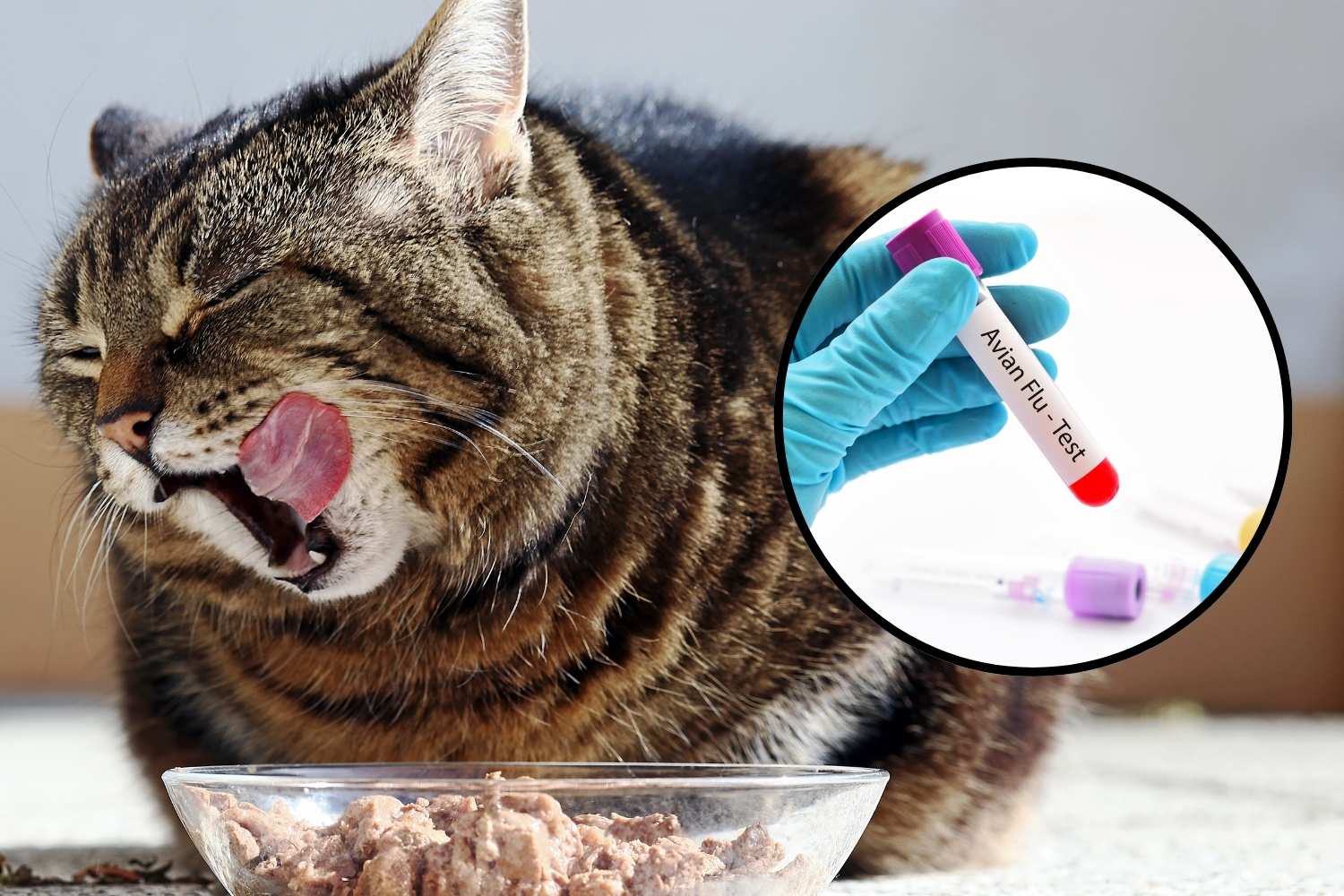The first cases of avian influenza in cats have been reported in the United States, caused by the consumption of raw pet food contaminated with the H5N1 virus

Avian influenza, or bird flu, is a viral infectious disease that largely affects birds. In recent years, however, it has been a source of concern due to its potential for transmission to other animals, including humans. Although it is uncommon in humans, the virus might be passed to mammals, such as cats, not only through direct contact with infected animals but also through consumption of infected meat, as recently occurred in the United States.
Recent cases of avian flu in u.s. cats
In the last few weeks, the first cases of avian influenza were recorded among domestic cats in the United States, which was due to contaminated food. These cases triggered a series of recalls by a company that produces raw pet food.
The wild coast raw recall
Wild Coast Raw recalled several batches of its Feline Boneless Free Range Chicken product after cats in Oregon fell ill and were euthanized. The cats and unopened batches of the tested product tested positive for the H5N1 virus.
The affected lots bear codes 22639, 22641, 22653, 22660, 22664, and 22672, and an expiry date of 12/2025. The products can be identified by labels on the lids of the containers.
In response, Wild Coast Raw has begun producing a new line of cat food made from cooked chicken, a formula that will be in stores in the near future. The cooking at 165°F (approximately 74°C) is sufficient to deactivate the avian influenza virus, according to the Centers for Disease Control and Prevention (CDC).
The firms, however, did not provide detailed explanations of how the contaminated products were tainted.
The risks of raw pet food
The recent case highlights the potential risks of raw pet food and the contamination that such foods can carry, posing health risks to both animals and humans. In addition to the H5N1 virus, raw pet food is also reported to be potentially contaminated by other pathogens, such as Salmonella, which can cause disease in both pets and humans.
In order to reduce such risks, it is necessary to handle raw pet food with care, cleaning surfaces and washing hands thoroughly after contact. It is also advisable to avoid feeding raw food to pets, especially of uncontrolled origin.
New rules for pet food manufacturers
Disturbed by the developments, the FDA has instituted new regulations on pet food manufacturers, particularly those using raw or unpasteurized ingredients. The new regulations are designed to prevent avian influenza contamination.
Manufacturers will need to update their food safety plans, adopting preventive measures such as thermal treatment of ingredients to ensure the inactivation of the virus.
Avian influenza symptoms in cats
According to the American Veterinary Medical Association, the avian influenza symptoms in cats include:
- Fever
- Lethargy
- Excessive eye and nasal discharge
- Shortness of breath
- Tremors
- Seizures
- Loss of coordination
- Blindness
- Loss of appetite
- Red or inflamed eyes
